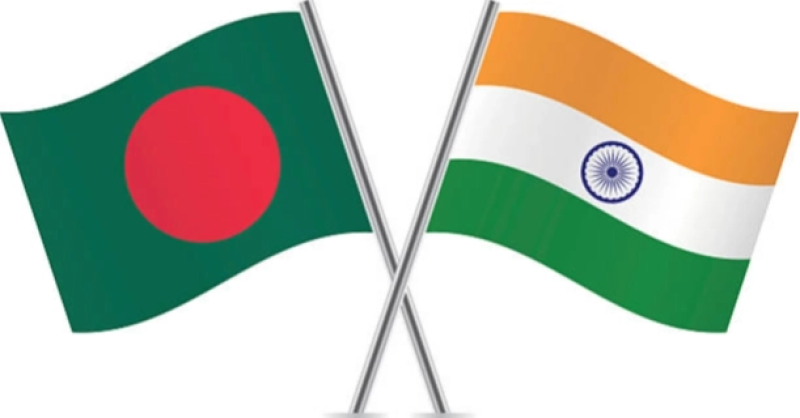- Puppet show enchants Children as Boi Mela comes alive on day 2 |
- DSCC Admin Salam’s drive to make South Dhaka a ‘clean city’ |
- 274 Taliban Dead, 55 Pakistan Troops Killed |
- Now 'open war' with Afghanistan after latest strikes |
- Dhaka's air quality fourth worst in world on Friday morning |
Positive Momentum in Dhaka-Delhi Ties Despite Tensions

Despite recent concerns over border killings and push-ins, Bangladesh-India relations appear to be regaining momentum, showing signs of goodwill and cooperation, according to officials from both countries.
A recent visit by an Indian medical team to Dhaka, following Prime Minister Narendra Modi’s assurance of support after the tragic July 21 plane crash, has been received positively by the Bangladeshi government. The team held consultations with health ministry officials and doctors at the National Institute of Burn and Plastic Surgery, reviewing treatment plans for victims.
Foreign Affairs Adviser Md Touhid Hossain said the interim government remains committed to building a respectful and reciprocal relationship with India. “From the beginning, we have emphasised the importance of good working relations based on mutual respect. Our position has not changed,” he said.
A symbolic gesture of friendship came earlier this month when Chief Adviser Prof Muhammad Yunus sent mangoes to Indian leaders, continuing the tradition of "mango diplomacy"—a seasonal expression of shared culture and neighbourly warmth. Recipients also included leaders of Bhutan, Nepal, Pakistan, and the Maldives.
Despite efforts to reduce border incidents, fatal shootings continue. On July 25, two Bangladeshi nationals were killed and another injured by India’s Border Security Force (BSF) along the Bashpadua border in Feni.
Hossain strongly criticised such actions, stating, “No border force has the right to shoot and kill someone over a border violation. Such acts are illegal and must be addressed under Indian law.”
Although the Bangladesh-India border conference in February yielded agreements on joint patrols and information sharing, Dhaka says progress has been limited on the ground.
Bangladesh remains alarmed over reports of forced push-ins from India, a practice that violates bilateral agreements on repatriation. Hossain reaffirmed Bangladesh’s stance: “We expect repatriation to follow due process. Unilateral push-ins are unacceptable.”
On July 23, Human Rights Watch reported that Indian authorities expelled hundreds of ethnic Bengali Muslims to Bangladesh without proper legal procedures, many of whom were Indian citizens.
The Foreign Ministry of Bangladesh previously wrote to India on May 8, condemning the push-ins and reiterating that only verified Bangladeshi citizens should be accepted through official channels.
Since August last year, changes in both nations have led to shifts in bilateral dynamics. Officials say efforts are underway to restore balance in trade and political ties.
“Despite ups and downs, we can’t ignore India as our neighbour. And India can’t ignore Bangladesh. It's in both our interests to maintain cordial relations,” said a senior Bangladeshi official.
Looking ahead, Bangladesh's upcoming national elections—expected in early 2026—will be closely observed by regional partners, including India. Indian officials have voiced their support for free and inclusive elections.
Randhir Jaiswal, spokesperson for India’s Ministry of External Affairs, said, “We want a positive and constructive partnership with Bangladesh. Our cooperation spans development, diplomacy, and people-to-people ties.”

